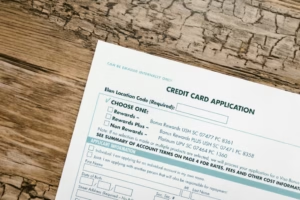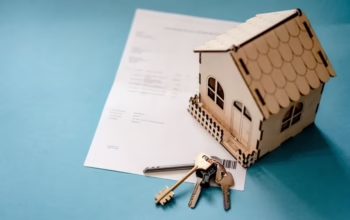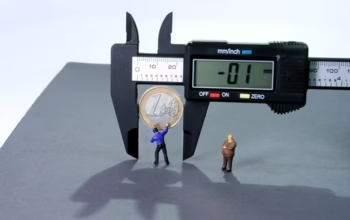Is The VA Loan Process Really Slower? Debunking The Rumors
For generations, the VA loan has been a cornerstone of the American dream for those who have served our country. Offering incredible benefits like zero down payment, no private mortgage insurance (PMI), and competitive interest rates, it’s a powerful tool for veterans, active-duty service members, and eligible surviving spouses seeking to buy a home.
However, a persistent and pervasive rumor has followed the VA loan for years: that its process is inherently slower and more complicated than a conventional mortgage. This misconception can make sellers hesitant to accept a VA-backed offer and may even discourage qualified veterans from pursuing the benefit they’ve earned. But is this reputation deserved? Do VA loans truly take longer to close?
In this comprehensive guide, we’ll dive deep into the VA loan process, compare its timeline to that of a conventional loan, and debunk the myths that hold back so many from leveraging this incredible benefit. We’ll explore the factors that actually influence a loan’s speed and provide actionable tips to ensure your VA loan closing is as smooth and swift as possible.

The Perception vs. The Reality
The notion that VA loans are slow is a deeply ingrained part of the real estate industry’s lore. It’s often rooted in a misunderstanding of the VA’s appraisal process and the unique requirements of the loan. Sellers, worried about a protracted timeline, may be inclined to favor a conventional offer, even if it’s for a slightly lower price. This “VA loan stigma” is a real challenge for many homebuyers.
However, the truth is far more nuanced. While there was a time when VA loan closings were often delayed due to bureaucratic red tape and inexperienced lenders, the modern landscape has changed dramatically. Today, with the right team and a prepared borrower, a VA loan can close just as quickly—or even faster—than a conventional loan.
According to some industry data, the average closing time for a VA loan is only slightly longer than the average for all loan types. The difference is often negligible, and in many cases, it’s the specific circumstances of the transaction, not the loan type itself, that dictate the timeline.

Understanding the VA Loan Process: The Key Differences
To understand why the “slow” rumor persists, it’s important to pinpoint the key areas where a VA loan differs from a conventional one. These differences are often the source of potential delays if not managed correctly.
- The VA Appraisal and Minimum Property Requirements (MPRs): This is arguably the most significant source of the VA loan’s reputation for being slow. Unlike a conventional appraisal, which primarily focuses on the home’s market value, a VA appraisal has an additional layer of scrutiny. The appraiser, who must be VA-certified, is tasked with ensuring the property meets the VA’s Minimum Property Requirements (MPRs). These standards are designed to protect the veteran by ensuring the home is safe, structurally sound, and sanitary.
- What this means: The appraiser will look for issues like peeling paint, a lack of handrails on stairs, broken windows, or faulty plumbing. If any MPR issues are found, they must be repaired before the loan can close. This is where delays can occur, especially if a seller is unwilling or unable to make the necessary repairs promptly.
- Lender Underwriting and VA Entitlement: The VA doesn’t actually lend the money; it guarantees a portion of the loan for the lender. This guarantee allows lenders to offer the exceptional benefits of a VA loan. However, it also means the lender’s underwriting process must adhere to both their own guidelines and the VA’s. The borrower’s Certificate of Eligibility (COE), which confirms their VA loan benefit, must also be secured and verified.
- What this means: The underwriting process for a VA loan can sometimes involve an extra layer of documentation and verification. An underwriter will carefully review the borrower’s financial information, including credit history, income, and debt-to-income ratio, to ensure they meet both the lender’s and the VA’s standards.
The Real Culprits Behind Closing Delays
While the VA-specific elements mentioned above can be a source of delay, they are rarely the sole cause. The truth is, most mortgage closing delays are a result of factors that affect all loan types, conventional and VA alike.
- Borrower Preparedness: This is the single biggest factor in determining a loan’s speed. A borrower who is organized and provides all requested documentation quickly and accurately will significantly shorten the timeline. Missing or incomplete paperwork is a leading cause of delays, regardless of the loan type.
- Appraiser Availability and Turnaround Time: While the VA appraisal has a specific set of requirements, the simple logistics of the appraisal process can be a bottleneck for any loan. In a high-demand housing market, appraisers can be backlogged, leading to delays in getting an appointment and receiving the final report. This is a market-driven issue, not a VA-specific one.
- Lender and Loan Officer Experience: This is a crucial, yet often overlooked, factor. A lender and loan officer who are experienced in handling VA loans will have a streamlined process in place. They know what to look for, how to anticipate potential issues, and how to communicate effectively with the VA and other parties involved. A lender who only occasionally handles VA loans may not have the same level of expertise, leading to slower processing times.
- Issues with the Property or Title: Unexpected problems with the home itself, such as a complicated title or unpermitted renovations, can bring any loan to a halt. These issues are not unique to VA loans and require time and legal expertise to resolve.
- Seller and Real Estate Agent Inexperience: Delays can also be caused by a seller or real estate agent who is unfamiliar with the VA loan process. They may misunderstand the appraisal requirements or be overly cautious due to the lingering “stigma.” A knowledgeable and proactive real estate agent on the veteran’s side can help educate the seller’s agent and keep the process on track.
Debunking The VA Loan Stigma: A Myth-Busting Reality Check
Let’s directly address some of the most common misconceptions that fuel the “VA loans are slow” narrative.
- Myth: VA appraisals are overly strict and always cause delays.
- Reality: The VA appraisal is a protective measure. It’s designed to ensure the veteran is buying a safe and sound home, which is a significant benefit. While MPR issues can arise, they are often minor and easily fixable. An experienced VA-savvy agent can help identify potential issues before an offer is even made, saving valuable time.
- Myth: VA loans require more paperwork and bureaucracy.
- Reality: While there are VA-specific forms, such as the Certificate of Eligibility, the overall documentation is very similar to a conventional loan. The real bottleneck is almost always the borrower’s ability to provide the required documents in a timely and complete manner.
- Myth: Sellers prefer conventional offers because they close faster.
- Reality: While this can be a perception, a well-managed VA offer can be incredibly strong. The lack of a down payment means the veteran has more liquid cash available for closing costs and other expenses. A pre-approved VA buyer is a highly qualified buyer, and a good real estate agent will highlight these strengths to the seller’s agent, mitigating any concerns about the closing timeline.
- Myth: The government’s involvement makes the process slow and complicated.
- Reality: The VA’s role is to guarantee the loan, not to bog down the process. Many of the perceived delays are actually the result of lenders or third-party vendors who are not experts in VA loans. The VA has worked to streamline its processes, and for lenders who work with the VA regularly, the system is efficient.
How to Speed Up Your VA Loan Closing
Don’t let the rumors deter you. By being proactive and working with the right team, you can ensure your VA loan closes on time, or even ahead of schedule.
- Get Your Ducks in a Row (Early): Before you even start house hunting, get your Certificate of Eligibility (COE). The process is quick and can be done online. Gather all your financial documents, including pay stubs, W-2s, bank statements, and tax returns. The faster you can provide these to your lender, the faster they can process your application.
- Choose a VA-Experienced Lender and Loan Officer: This is, without a doubt, the most critical step. Not all lenders are created equal when it comes to VA loans. Work with a lender who specializes in VA financing and has a proven track record of quick and efficient closings. They will have a deep understanding of the VA’s requirements and a streamlined process for appraisals and underwriting.
- Hire a VA-Savvy Real Estate Agent: Just as important as your lender, your real estate agent should be an expert in working with military homebuyers. They’ll understand the nuances of the VA loan and be able to help you find properties that are more likely to pass the MPR inspection. They can also effectively communicate the strength of your VA offer to a seller’s agent.
- Be Responsive and Proactive: Once the process begins, stay in constant communication with your loan officer and real estate agent. If they request additional information, provide it immediately. Don’t let a simple request for a missing document hold up your entire closing.
- Consider a Home Inspection: While not required for a VA loan, a home inspection is always a smart move. It can uncover potential issues that may not be caught by the VA appraisal and give you time to negotiate repairs with the seller, preventing last-minute surprises that could delay closing.
The Bottom Line: VA Loans Are a Benefit, Not a Burden
The perception that the VA loan process is inherently slower than a conventional one is a myth born of outdated information and inexperienced professionals. In today’s market, a VA loan can close just as efficiently as any other. The key is to be a prepared and proactive borrower, and to assemble a team of experienced and knowledgeable professionals—a VA-savvy loan officer and a real estate agent who understands the unique benefits of this powerful homebuying tool.
Don’t let a lingering myth prevent you from using the home loan benefit you’ve earned. The VA loan is a testament to our nation’s gratitude, and with the right approach, it can be your fastest and most affordable path to homeownership.



